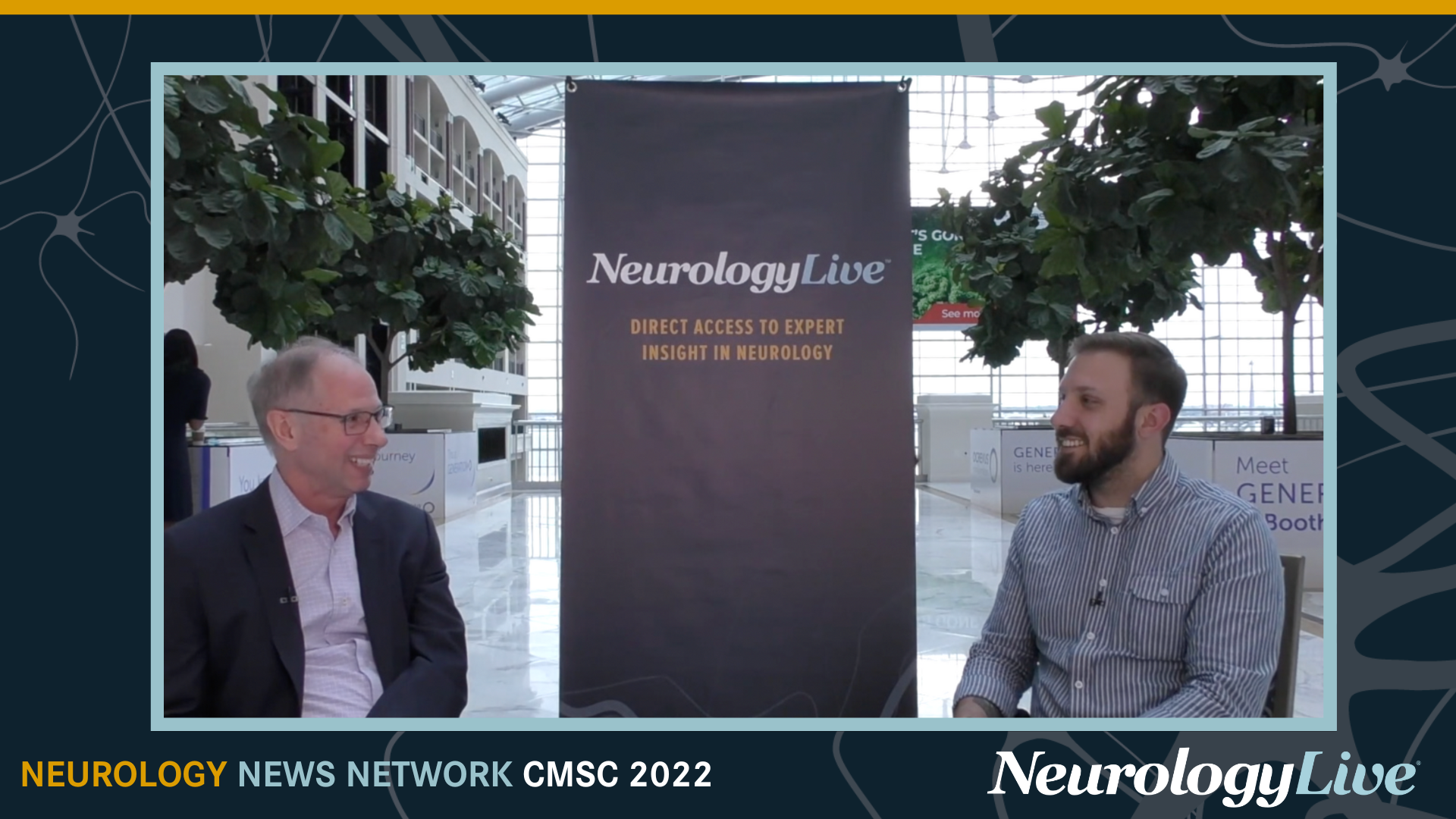
Unanswered Questions About MS Stem Cell Transplantation

Jeffrey Cohen, MD, spoke about the topic of his CMSC Presidential Lecture at the 2022 annual meeting, stem cell transplantation in multiple sclerosis, and what questions remain unanswered in this realm of treatment.
WATCH TIME: 3 minutes
For more coverage from CMSC 2022, click here . A transcript of the conversation is below.
Matt Hoffman: I know you mentioned that there’s little bit that we're not totally sure about in terms of some of the underlying disease processes and this procedure’s effect on that. But other than that, is there anything based on the aggregate data that's available that perhaps was surprising or even concerning, that might indicate that we still have a few things we need to figure out before this becomes a more standardized approach?
Jeffrey Cohen, MD: Well, I think we need to be more confident that we can select the right patient. In general, it's more effective for people that are younger with more recent onset of their disease, with continued relapses, continued active activity on the MRI, and with ongoing activity despite treatment. But what we really don't know are precisely what are the cut offs? How old can someone be? How disabled can they be when it starts to be unsafe? How many relapses do they actually have to have? How many active lesions? When did that have to happen? That's where we're still trying to pin things down a little bit better.
Matt Hoffman: A lot of promise, but again, a lot of questions.
Jeffrey Cohen, MD: Yeah. Because when a patient comes to you, you don't want to just say to them, “Well, in general, it's a good idea.” It’s “you're the right age,” and so forth. You have to have the specifics.
Matt Hoffman: I imagine, especially now, one of the themes of this conference is that shared decision-making, and it’s difficult to go into that conversation not minding your P's and Q's.
Jeffrey Cohen, MD: Exactly. On the physician side, we need to know precisely how old someone can be, and so forth. On the patient's side, they need to have an accurate understanding of what they're getting themselves into, and how they might benefit, and what problems they might experience.
Matt Hoffman: Let's kind of wrap it up and put a bow on it. What's the takeaway? What should the community walk away from, again, if they attended the lecture, or perhaps are watching this, walk away with? What's the knowledge that they should have about this?
Jeffrey Cohen, MD: The main message I would try to convey is that transplant is not just a last-resort procedure. It, probably, is a reasonable option for a sizable number of people before they've gone through every possible disease medicine, but the devil will be in the details. And once we have a better handle on who is the right candidate, I think you'll start to see transplant being done more often.
Transcript edited for clarity.
Newsletter
Keep your finger on the pulse of neurology—subscribe to NeurologyLive for expert interviews, new data, and breakthrough treatment updates.










